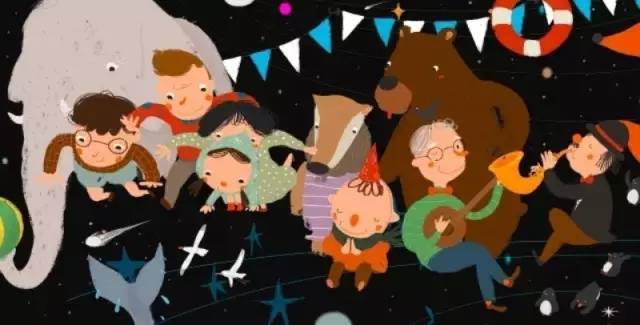The trend is growing on social media, but marketing has never completely changed


Introduction
One of the charms of social networking is that people can make new friends wherever they are. But on Facebook, most of our friends are in the same area, and people are more interested in strengthening close friends.
So, says John Quelch, "locations" in traditional marketing are still important, and social media hasn't revolutionted marketing, bringing new opportunities for marketers.
Many people say that e-commerce foreshadows the "distance" and "location" in modern market management marketing has disappeared, however, this is not the case.
Even as more and more people go online, they still like to look for information close to them: read news about their community or country, participate in social networks made up of friends and family, and buy goods from local and national retailers.
So, for many marketers, virtual space is just a complement, not a complete replacement for physical space. Of Google's thousands of queries every day, one in five is geo-location-related. Because smartphones connect businesses and consumers.

People use Facebook more to strengthen existing or geographically similar relationships than distant ones
Even as social media explodes around the world
Facebook is more or more close
Marketers can use this neighborhood friend model
There is no doubt that the online services industry is the most explosive growth in social media. Social networking sites are rapidly emerging because they can create a unique, surrounded user experience that no product can really match online.
Equally important, almost all content is user-generated, although some come from advertisers.
YouTube has hundreds of millions of visitors a month, and if you count it in minutes, Facebook is the world's most streamed site. One of the charms of social media and social networking, by all accounts, is that people can make new friends and connect with people anywhere, no matter where they are.
However, one study found that the average friend on Facebook is in the same big city area; for teenagers, 90 percent of their friends on Facebook are in the same area.
Another study found that people use Facebook more to strengthen existing or geographically similar relationships than distant ones.
Another analysis echoes the method of dividing the United States into nine regions, which divided the country into seven regions based on the 210 million images on Facebook based on friends' connections.
In these regions, local groups are very strong and have few links outside the region. In other words, social networking-based friend relationships remain highly local for most users.
Marketers can make good use of this nearby friend model. Since consumers continue to share their preferences for retailers, product reviews, and online promotions through social networks, the characteristics of a rational and focused relationship between friends can make it easier for merchants to target customers based on where they live and coordinate marketing campaigns off-the-web and online.

The usefulness of social media has not revolutioned marketing
Within the virtual space
There is very little positive interaction between people and businesses
Social media hasn't revolutionized marketing
One might think that consumers have a similar view of online and traditional advertising, or that they may be more accepting of online advertising. Not really.
The fact that Burberry has more than 1 million followers on Facebook, for example, sounds impressive. However, in the virtual space, people and businesses have very little active interaction.
A Pew Research Center study found that 5 percent or less of consumers who use the Internet to study or buy music, cell phones and homes post ratings online. Seven percent of Americans use the Internet as their primary social communication tool, but they are confused and ambivalent about that sense of connection.
These are mainly men between the ages of 25 and 30, and although they also use electronic devices for entertainment, "a lot of people think it's good to take a break from the Internet." If this sense of burnout spreads, the first thing to give up is to talk about the connection with the merchant and its brand.
It has been pointed out that social media will revolutiontate marketing. How far-reaching is this change? I don't think it's possible to reach a conclusion for a number of reasons:
First, social media does not change the main purpose and principle of marketing, which is to get and retain customers by meeting their needs.
Second, social networks amplify the potential importance of customer word-of-mouth referral brands, because the impact of word-of-mouth advertising has long been recognized by marketers.
Third, Facebook, Twitter and other social media, like previous print or broadcast media, must rely on paid advertising or sponsorship from marketing merchants to offset their costs.
Finally, marketers have long used emerging media while retaining existing ones. Television did not wipe out newspaper advertisements. Direct mail has boosted, rather than eaten up, retail sales.
It's clear that the usefulness of social media hasn't revolutioned marketing, but has improved marketing -- in terms of market research, new product development, and customer engagement, brand positioning, targeting customers, and content creation.
On the other hand, marketers face a double challenge: they have less control over social media than other online or traditional media, and the reach and frequency of consumer word-of-mouth propaganda is dramatically magnified.
A particular concern is that consumers trust their peers more than marketers. Nine percent of Internet users trust the recommendations of people they know, while 70 percent trust comments posted online by strangers.
Good marketers are increasingly aware that any mistake can spread around the world in almost instant, so they monitor what they say about other brands online.
The more the world becomes interconnected, the more we want to emphasize localization, a trend that creates opportunities for marketers
Trends are rarely so black and white
At all levels, location remains important
This creates new opportunities for marketers
Experts and observers are always quick to point out the changing business environment and predict the demise of old ways of thinking: numbers will replace entities;
But as we have seen, trends are rarely so black and white, and tilting towards one side does not always mean the demise of the other.
In some cases, we see ourselves as global citizens, meeting our needs with the most value for money brands, regardless of country of origin, while joining the local communities where we live today, supporting local businesses and local products.
The cost of not doing the right thing is very high. Wal-Mart has lagged behind Carrefour in China for years, and there are still relatively few joint ventures there. Carrefour is regarded as outstanding in local adjustment.
The forces of globalization have not yet reached the point where places become irrelevant. Countries remain the organizational structure of the world's population. Even the most globalized people spend most of their time in a small area.
The more the world becomes interconnected, the more we want to emphasize localization. Such trends create opportunities for marketers. At the local level, barriers to market entry are minimal and many consumers are happy to give local suppliers a chance.
For global marketers, however, they can take advantage of the economies of scale and scope of globalization and provide them with tailored products and services based on differences in consumer preferences between communities, cities and villages, developed and emerging economies, between one continent and another.
At all levels, location remains important.
Source: From John Quilch's book P Marketing: Location Impact in Business Promotion, from the MBA Club


Go to "Discovery" - "Take a look" browse "Friends are watching"